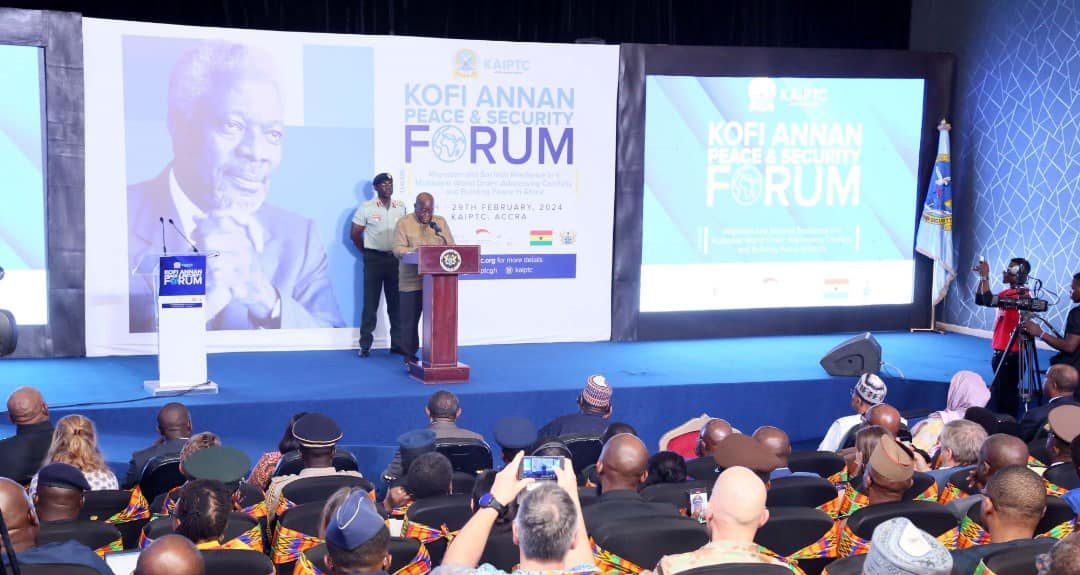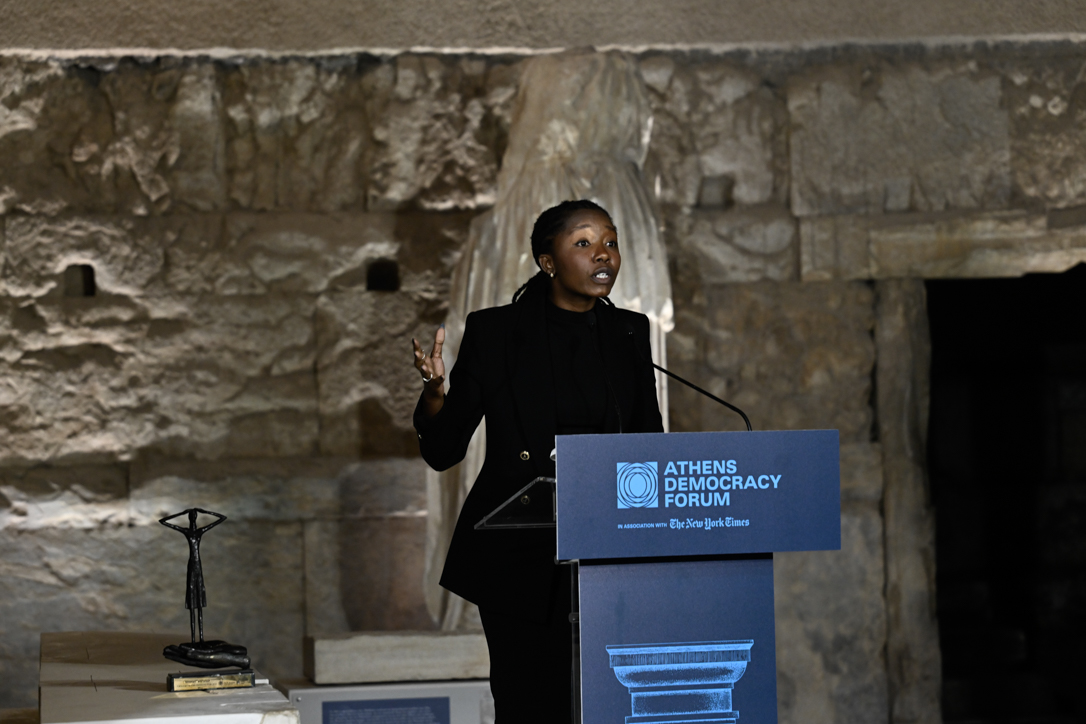The Future of Political Leadership: Reflecting on a crisis that affects the core of democracy
“Politics is the art of making possible what is necessary,” goes the adage cited by Corinne Momal-Vanian, the Executive Director of the Kofi Annan Foundation (KAF), in her opening remarks at the recent workshop on political leadership co-convened on 6 December 2022 by the Foundation with the Geneva Centre for Security Policy (GCSP) and NexusVesting.
Political leadership is indeed the missing link between the many challenges the world faces on the one hand and the wealth of knowledge and technical solutions available on the other. It significantly influences the security, well-being, and prosperity of societies and citizens’ confidence in governments. We need highly qualified leaders to face multiple and increasingly difficult challenges such as armed conflict, growing social and economic divides, geo-political shifts, the digital revolution, pandemics, and climate emergencies.
“Politics is the art of making possible what is necessary.”
“Yet many leaders today no longer seem to know how to deliver, or even what is necessary”, Corinne Momal-Vanian regretted. “This crisis of political leadership goes a long way to explaining the crisis of democracy itself”, she warned, quoting recent studies on the declining trust in politicians and politics in established and fledgling democracies alike.
In many countries, voters are disillusioned with democracy. Trust in governments and politicians is at an all-time low. The latest edition of the Democracy Perception Index shows that governments are simply not living up to the expectations of their citizens. If leaders cannot deliver, then voters will flock in ever greater numbers to the populists, who offer simplistic solutions to complex problems.
What is expected from political leaders in this era of uncertainty and change? What does improving political leadership entail? What can be done in practical terms to promote politicians that live up to political leadership standards that are largely undefined? How can we improve the selection of political leaders and develop a pipeline of well-equipped people?
These were the guiding questions informing the workshop, which gathered a host of leading organisations in this area, such as the Westminster Foundation, Apolitical, the Nelson Mandela School of Governance, the Universal Rights Group, Reinstitute, and UN Women. They were joined by representatives of some diplomatic missions to the United Nations in Geneva, who shared their concerns about the crisis of leadership and its implications.
The objectives of the workshop were to:
- Provide a platform for exchange on what is required to equip political leaders with the mindsets and capabilities needed to rebuild people’s trust and lead through multiple complex challenges.
- Bring diverse actors together to deepen and broaden our collective understanding of the challenges and needs of political leaders.
- Create opportunities for further cooperation by convening relevant and committed partners that can make meaningful contributions to addressing the issues that emerge during the discussions.
![]()
Zeid Ra’ad Al Hussein, President of the International Peace Institute and former UN High Commissioner for Human Rights, spoke about the qualities needed from political leaders, such as personal responsibility, a belief in progress, knowledge, and the ability to deal with adversity. He deplored what he saw as the mediocrity and lack of vision of much of today’s political class. He flagged that elitism is preventing people from getting engaged, the need to break the cycle of power politics and involve real expertise.
Former Geneva Mayor Sandrine Salerno, sharing her experience of politics, noted that many elected politicians were not fully aware at the outset of their mandates of what becoming a public persona meant. She described some of the challenges she faced as a woman politician, and how she had to defy stereotypes and overcome prejudices. She emphasized the need for political leaders to show courage, ask tough questions, and take on the job with a focus on achieving real change and moving things forward.
The workshop focused on four key pillars:
- Understanding
- Pathways and Preparedness
- Citizen engagement
- Accountability
Participants agreed that existing pathways to political leadership overfocus on how to access and retain power, neglecting complex essential policy work. Though training in key areas of policy and skills is crucial, they also stressed that political leadership is about more than knowledge and skills: it is about empathy, vision and integrity. They noted that intermediaries such as political parties and trade unions are losing ground, and often fail to benefit from new technologies for engagement. And while political parties remain the main conduits to political office, they often reward loyalty and continuity over knowledge, skills, innovation or integrity.
Corinne Momal-Vanian, Kofi Annan Foundation Executive Director, with Zeid Ra’ad Al Hussein and Christina Orisich, GCSP Deputy Director, at the Political Leadership workshop on 6 December 2022 in Geneva, Switzerland.
As a result, activist movements have evolved as an alternative to political engagement, especially among young people. The group dedicated a lot of attention to the issue of youth participation in politics, a key area of KAF’s work. Contrary to common stereotypes, there was a consensus that youth today is at least as political as previous generations. Still, due to declining faith in the effectiveness of traditional politics, its engagement takes new forms, including demonstrations, online activism and boycotts.
“…political leadership is about more than knowledge and skills: it is about empathy, vision and integrity.”
Politicians do not operate in a vacuum. A key point for citizen engagement will be developing and sharing positive narratives of democracy and how and why citizens should get involved. It is equally important to communicate clearly the cost of non-democratic systems and non-engagement. As inflation takes hold and purchasing power shrinks fast for many, participants also discussed how to address the cost of participation for those who are struggling and who lack time and opportunity to engage.
“Politics is too important to be left only to politicians. Democracy depends on the lively participation of organised civil society in political life.” – Kofi Annan
With the actual performance of politicians hard to measure in the age of disinformation and spin doctors, it was also noted, it is important to reinforce independent oversight systems in place, such as legislative and policy accountability, as well as reflect on new mechanisms for accountability. Strategies and methods must be sought to increase current and future leaders’ focus on personal responsibility, and their commitment to values and the notion of public service.
In concluding the workshop, Peter Cunningham, the GCSP’s head of leadership and the workshop host, encouraged the participants to join forces to address this crucial issue of our times. This could entail providing a platform for international think tanks and academic experts to fill the research gap in the field of political leadership, convening more public discussions on the issue, and bringing aspiring political actors/leaders from different regions and political perspectives to come together and gain inspiration/renewed motivation from each other while also learning to engage with different viewpoints and worldviews.
As Kofi Annan said, “politics is too important to be left only to politicians. Democracy depends on the lively participation of organised civil society in political life.”



